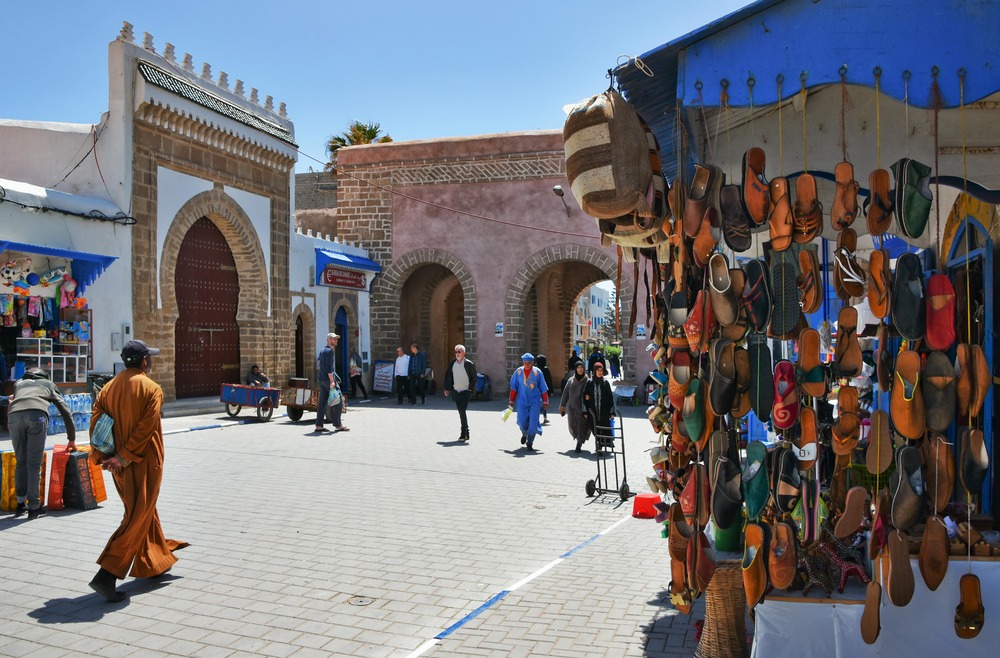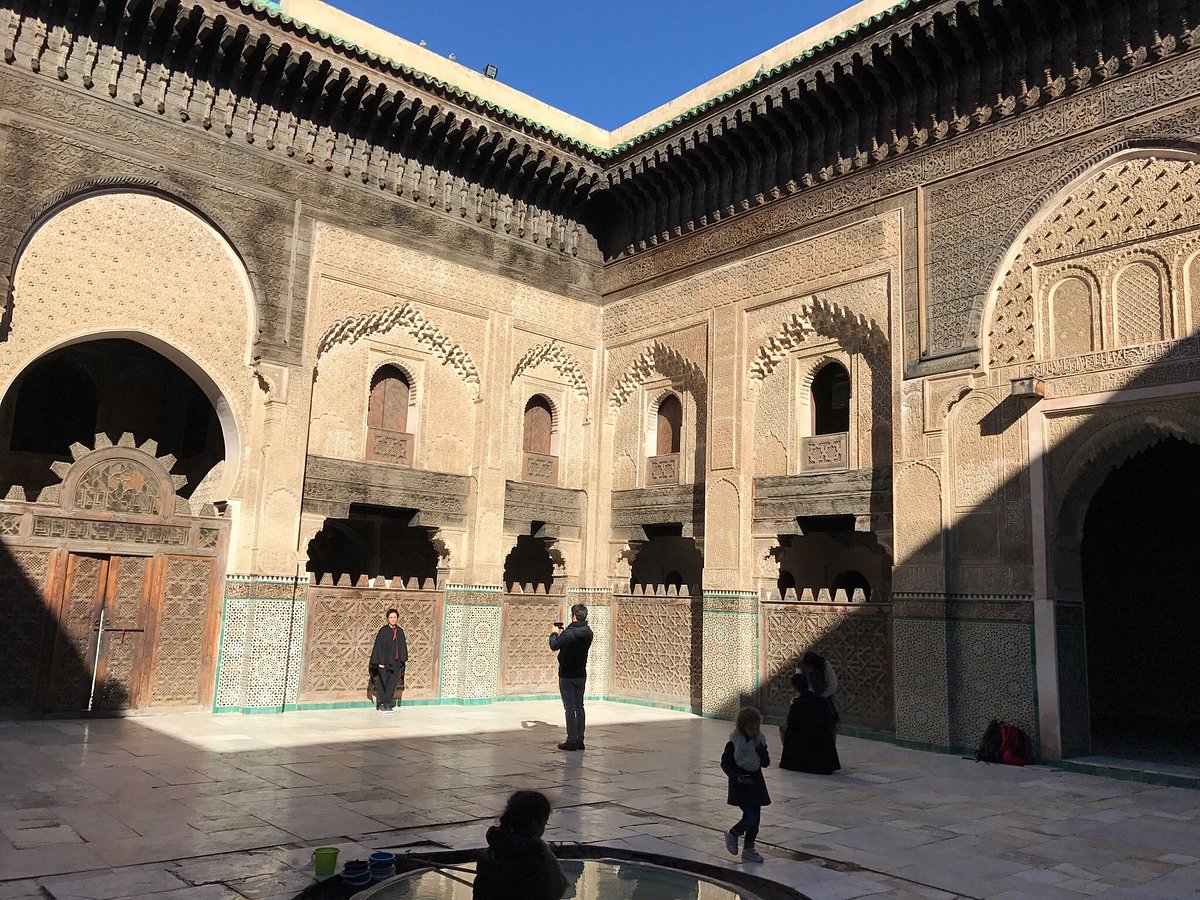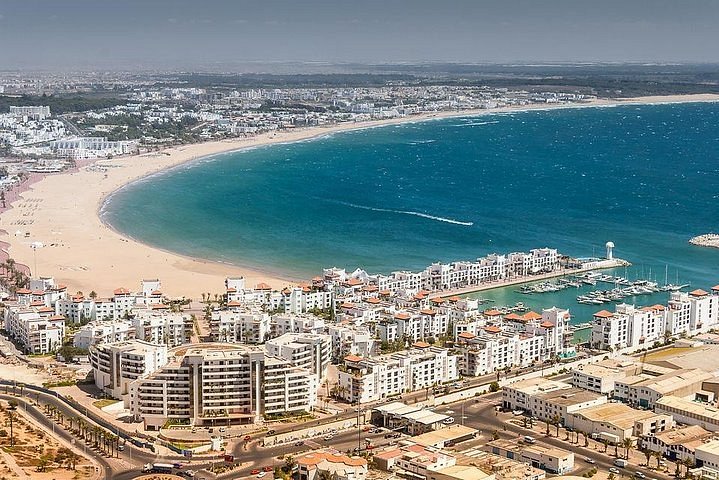
Shopping in Essaouira: Best Souks and Artisan Markets

Nestled along Morocco's Atlantic coast, Essaouira captivates visitors with its whitewashed buildings, blue doors, and refreshing sea breeze. Unlike the frenetic energy of Marrakech, this charming coastal city offers a more laid-back approach to the traditional Moroccan shopping experience. The UNESCO-protected medina of Essaouira houses a treasure trove of artisan workshops, colorful souks, and inviting marketplaces where local craftsmanship thrives.
Shopping in Essaouira presents a unique opportunity to discover authentic Moroccan crafts in an atmosphere where artisans still practice centuries-old techniques. The city's creative spirit has attracted artists and craftspeople for generations, resulting in a distinctive blend of traditional and contemporary items that can't be found elsewhere in Morocco.
Explore the Essaouira Medina

A Shopper's Paradise in the Heart of the City
The ancient walled medina of Essaouira serves as the vibrant center of local commerce and creativity. Built in the 18th century, its distinctive grid-like layout—unusual for a Moroccan medina—makes it particularly accessible for first-time visitors. As you step through Bab Marrakech or one of the other historic gates, you'll immediately be enveloped by the sights, sounds, and scents that define the Essaouira shopping experience.
What sets shopping in Essaouira apart is the relaxed atmosphere. Unlike larger Moroccan cities where persistent vendors can sometimes overwhelm tourists, Essaouira's merchants generally take a more gentle approach, allowing you to browse at your leisure and truly appreciate the craftsmanship on display.
Navigating the Colorful Alleys and Stalls
The compact nature of Essaouira's medina means you can easily explore the entire shopping district on foot in a single day. The main arteries—Avenue Mohamed Zerktouni and Rue Mohamed El Qorry—host many of the city's finest shops, while the smaller side streets reveal hidden workshops where artisans can be observed creating their wares.
Follow the flow of locals and tourists alike as they meander through the network of alleys lined with shops displaying colorful textiles, gleaming metalwork, and fragrant spices. The sea of blue and white colors that characterizes the city extends into its marketplaces, creating a picturesque backdrop for your shopping adventures.
Top Souks in Essaouira

Souk Jdid (New Souk) – A Lively Experience
Located just inside Bab Doukkala in the northern section of the medina, Souk Jdid buzzes with activity throughout the day. This "new" market (though still quite historic) specializes in everyday items for locals alongside tourist-friendly crafts. Here you'll find an eclectic mix of textiles, clothing, leather goods, and household items.
What makes Souk Jdid worth visiting is its authentic atmosphere—this is where locals shop, offering visitors a glimpse into everyday Moroccan life. The prices here tend to be more reasonable than in shops along the main tourist thoroughfares, making it an excellent place to practice your bargaining skills.
Souk Laghzal – Traditional Goods and Fabrics
Textile enthusiasts shouldn't miss Souk Laghzal, Essaouira's fabric market. Located near the center of the medina, this specialist souk showcases a dazzling array of fabrics, from simple cotton to elaborate brocades and silks. Vibrant colors and intricate patterns adorn rolls of cloth that local tailors can transform into custom garments, often within 24 hours.
Beyond fabrics, you'll discover beautiful hand-woven blankets, traditional Moroccan djellabas (long, loose-fitting outer robes), and colorful carpets. The merchants here are particularly knowledgeable about their textiles and can often explain the origins and techniques behind different patterns and weaves.
Spice Souks – Scents and Flavors of Morocco
The aromatic spice souks of Essaouira offer a sensory feast that epitomizes the Moroccan market experience. Follow your nose to discover pyramids of golden turmeric, ruby-red paprika, and dozens of aromatic spice blends like the famous ras el hanout, which can contain over 30 different ingredients.
Beyond cooking spices, these specialized vendors offer natural remedies, fragrant oils, and traditional beauty products. Many spice merchants speak excellent English and delight in explaining the culinary and medicinal uses of their wares. Packaged spices make wonderful souvenirs that will bring the flavors of Morocco to your home kitchen long after your trip ends.
Artisan Products to Look For
Thuya Wood Crafts – Boxes, Furniture, and Décor
Essaouira is renowned throughout Morocco for its exquisite thuya wood crafts. This aromatic wood, harvested from trees that grow in the nearby countryside, features distinctive burls and grain patterns that artisans transform into everything from small decorative boxes to elaborate furniture pieces.
As you explore the medina, you'll encounter numerous workshops where craftsmen meticulously inlay thuya wood with citrus wood, mother of pearl, and camel bone to create intricate geometric designs. The pleasant aroma of thuya lingers in these pieces for years, making them both beautiful and evocative souvenirs of your time in Essaouira.
Argan Oil and Cosmetics – A Local Specialty
The Essaouira region is the epicenter of argan oil production, often called "Morocco's liquid gold." This rare oil comes from the nuts of argan trees that grow almost exclusively in southwestern Morocco. Traditionally extracted by hand by Berber women, pure argan oil serves both culinary and cosmetic purposes.
When shopping in Essaouira, you'll find countless vendors offering argan oil products, from the pure oil itself to soaps, shampoos, and moisturizers. For the most authentic experience, seek out women's cooperatives where you can observe the traditional extraction process and purchase directly from the producers.
Leather Goods and Hand-Woven Rugs
Moroccan leather crafts represent some of the country's finest artisanal traditions, and Essaouira offers a wonderful selection of leather bags, poufs, shoes, and accessories. The city's leatherwork often features distinctive blue and white color schemes that reflect its coastal character.
Similarly, the region's rugs and textiles display unique patterns that differ from those found in other parts of Morocco. Look for Berber rugs with geometric designs and Moroccan kilims in the city's many carpet shops, where merchants are typically happy to unfurl dozens of options while serving mint tea.
Handcrafted Jewelry and Pottery
Silver jewelry with Berber and Tuareg influences abounds in Essaouira's medina shops. Many pieces incorporate amber, coral, and semiprecious stones in traditional designs that have been passed down through generations. The city also hosts contemporary jewelry designers who blend traditional techniques with modern aesthetics.
Essaouira's pottery tends to be more subtle than the brightly colored ceramics of Fez, often featuring blue and white patterns that reflect the city's Portuguese influences. Look for handpainted plates, bowls, and decorative items that make both functional and beautiful souvenirs.
Best Artisan Shops and Cooperatives
Visit Women's Argan Oil Cooperatives
For an authentic argan oil shopping experience, visit one of the women's cooperatives located just outside the medina. Cooperatives like Marjana and Ajddigue employ local women in fair-trade environments, providing sustainable livelihoods while preserving traditional extraction techniques.
These cooperatives welcome visitors to observe the labor-intensive process of cracking argan nuts by hand and pressing the kernels to extract the precious oil. The products sold here may cost slightly more than those in the souks, but the quality is guaranteed, and your purchase directly supports the local women who produce it.
Recommended Art Galleries and Boutiques
Essaouira's reputation as an artist's haven means you'll find numerous galleries showcasing local talent. Galerie Damgaard on Avenue Oqba Ibn Nafiaa has been promoting local artists since 1988 and specializes in the colorful, naive style that has become associated with the Essaouira art scene.
For contemporary crafts with a traditional foundation, visit Histoire de Filles near Bab Marrakech, where handmade clothing, accessories, and home goods reflect modern Moroccan design sensibilities. L'Atelier des Arts on Rue Mohamed El Qorry offers a curated selection of high-quality handicrafts from throughout Morocco.
Bargaining Tips and Shopping Etiquette
How to Negotiate Respectfully
Bargaining is an expected part of shopping in Essaouira's souks, but the process should remain good-natured and respectful. Begin by establishing rapport with the merchant—a simple greeting of "Salam alaikum" (peace be upon you) goes a long way. Take time to admire their merchandise before inquiring about prices.
When given an initial price, offer about 40-50% less as your starting point. From there, work toward a middle ground that satisfies both parties. Remember that the goal isn't to obtain the absolute lowest price possible but rather to reach a fair value that respects the artisan's work while giving you a reasonable deal.
Know What's Fair and How to Compare Quality
Before beginning serious shopping in Essaouira, spend some time browsing different shops to get a sense of typical prices and quality ranges. This preliminary research will help you recognize fair offers and identify superior craftsmanship.
When evaluating wooden items, look for smoothly sanded surfaces and tight-fitting joints. For textiles and rugs, examine the tightness and evenness of weaving. With argan oil, pure products should have a slight nutty scent and golden color. Don't hesitate to ask questions about how items are made—most merchants appreciate genuine interest in their crafts.
When and Where to Shop in Essaouira
Opening Hours and Best Times to Visit the Souks
Most shops in Essaouira open around 9:00-10:00 AM and close by 8:00 PM, though specific hours vary by season and shop. Many businesses close for an hour or two during lunchtime, especially on Fridays when Muslims attend prayers. The souks are generally less crowded in the morning hours, offering a more relaxed shopping experience.
The ideal times for shopping in Essaouira are mid-morning or late afternoon when the light filtering through the medina's covered passages creates a magical atmosphere. Avoid shopping during prayer times out of respect, and be aware that some shops close earlier during Ramadan.
Weekly Markets and Special Shopping Days
While the medina shops operate daily, Essaouira also hosts a weekly Sunday market just outside the old city walls. This sprawling souk attracts vendors from surrounding villages, offering everything from fresh produce to handcrafted goods at prices typically lower than those found in the medina.
For a truly local experience, visit Had Draa, a massive rural market held on Sundays about 30 kilometers from Essaouira. Thousands of people from the surrounding countryside gather here to buy, sell, and socialize in a tradition that has continued for centuries.
Sustainable and Ethical Shopping
Support Local Artisans and Fair-Trade Cooperatives
Conscious travelers can make a positive impact through their shopping choices in Essaouira. By purchasing directly from artisans or cooperatives, you ensure that your money benefits those who actually create the products rather than a series of middlemen.
Several fair-trade shops in the medina, such as Khmissa and Cooperative Feminine d'Argane, adhere to ethical business practices and transparent pricing. These establishments typically forego bargaining in favor of fair fixed prices that provide sustainable incomes for producers.
Eco-Friendly Souvenirs to Bring Home
Essaouira offers numerous environmentally friendly shopping options. Consider purchasing items made from sustainable materials like recycled fabrics, organic argan oil products, or crafts made from renewable resources like palm fronds or esparto grass.
Avoid souvenirs that incorporate endangered materials such as coral or certain woods. Instead, choose handmade paper products, natural textiles, or food items like preserves and spices that come with minimal packaging and maximum local benefit.
Conclusion
Shopping in Essaouira offers a perfect blend of authentic Moroccan craftsmanship and relaxed coastal charm. Unlike the overwhelming maze of Marrakech's souks, Essaouira's manageable medina invites unhurried exploration and meaningful connections with local artisans. The unique products found here—from aromatic thuya wood creations to pure argan oil and distinctive blue-and-white ceramics—serve as lasting reminders of this enchanting Atlantic city.
Whether you're searching for a statement piece for your home or small tokens to share with friends, the markets and workshops of Essaouira provide treasures to suit every taste and budget. Beyond the items themselves, the experience of wandering through the historic souks, conversing with skilled craftspeople, and participating in the timeless ritual of negotiation becomes one of the most memorable aspects of any visit to this magical Moroccan port city. Shopping in Essaouira isn't just about acquiring souvenirs—it's about bringing home pieces of a centuries-old artistic tradition that continues to thrive in this unique coastal haven.

Lynne
Hi, I’m Lynne, a passionate travel writer and local expert at thingstodo.ma. With years of experience exploring Morocco, I love sharing insider tips and guides to help you discover the country’s hidden gems. Whether it's the lively streets of Marrakech or the peaceful shores of Essaouira, I’m here to make sure you experience the very best of what Morocco has to offer. Join me on this journey, and let's explore together!
Related content
Interdum et malesuada fames






